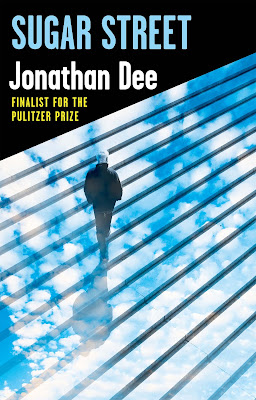The camera, apparatus of the desirous gaze, is made up of a shutter released upon a scene which one feels certain can never be fully contained within a 35 mm frame by a finger that is determined to live in the present moment, full as that moment is of affection, curiosity, and regret toward all those people living through the world's uncontainable time and space. The determination, the hesitation, the joy and fear of the moment when the finger releases the shutter are not about any critical consistency of a journalistic nature, but rather the ethics of the person holding the camera, who, with the rapid movement of a finger, must make an instantaneous decision with that desirous gaze.

I wake early this morning, before daylight, and not being able to fall back asleep, I play Wordle and then Connections, and glance at the forums for the latest developments in work gossip. Finally the sun comes up over the horizon, I get up to pee, and I raise the blinds on the sliding doors from the bedroom to the fire escape, I lower them only part way at bedtime to block the glare from the streetlight that is in my direct line of vision when I lie in bed, why is there a streetlight in the ruelle anyway? I crawl back into bed because it's still early and I pick up the novel I've been reading since forever,
Mild Vertigo, by Mieko Kanai, I swear there was still snow on the ground when I started, it came with me to Rhossili Bay in the late spring, on which vacation I read exactly nothing, except only the opening pages of Yukio Mishima's
Star, which lovely edition was an impulse purchase at the Tate Modern, I managed to squeeze in a visit, specifically to see an exhibit of
Maria Bartuszova's plaster work, all the lovely little Penguins lined up at the checkout as I paid for my solitary souvenir postcard (my studio is beginning to look a little like this, with experimental plaster fragments, the card now tacked to the wall as inspiration), and I couldn't resist starting to read it on my way back to Paddington before embarking west, but on this trip I only walked and walked and rested, and walked and sang and danced, and rested, only on two evenings did I opt to watch Netflix (Black Mirror, as it happens), otherwise quickly dropping off to sleep.
And Mild Vertigo came with me to Kabelvåg, but on this trip appropriately enough I was reading A House in Norway, by Vigdis Hjorth, and also not traveling alone so more likely to chat over a drink than to sit quietly with a book, although we shopped for books, and this included a miniquest for books by Jon Fosse who was announced Nobel laureate at about the same time as I landed in Oslo, the quest requirement being that it be in English and not be a behemoth, I very quickly settled on Aliss at the Fire as a small yet sufficiently representative work, I'm so tired of reading privileged self-indulgent white men who are somehow above the slash of an editor's pen, I didn't find a copy, but I've since ordered a Fitzcarraldo edition, and as I write this I glance up and note the other postcard on my studio wall from a show in Bergen, Ahmed Umar, whose polished, organic sculptural objects were all mounted on plaster casts of his hand in prayer emerging from the wall, what am I to do with my casts, the malformed latex gloves, make some comment on women's work and domesticity?

It's only in the last few weeks that I've been reading
Mild Vertigo again in earnest, and hoping my reading mojo is back, coaxing it back to life, my only regret being that it's not a Fitzcarraldo edition, I love French flaps, released coincidentally on the day I'd returned home from Wales and became aware of it only when my daughter had friends over for her birthday, and I'd grabbed my book and a drink intending to move to a quiet corner and give them some space, when one of the girls said she had that book only a Fitzcarraldo, I wonder now if it includes Kate Zambreno's afterword, because that's a stroke of genius, juxtaposing her essay over Kanai's text, which similarly lays a narrative over and around a creative essay about an exhibition of Nobuyoshi Araki and Kineo Kuwabara photography (loosely positioning them as journalist vs artist, respectively, characterized by cruelty vs compassion, respectively). I read Zambreno when I vacationed in Mexico, was that two years ago already, I don't think I ever wrote about it, it felt like research, preparatory, an immersion in process, when all I wanted to do was write, maybe I was heartbroken, probably I was, reading and writing were always therapy (do I no longer require therapy of this kind?). Here Zambreno writes, "I don't want to make it personal [...] but how else, to show the interior of an experience of a novel like this, how a novel invades you, as much as you invade it?" I love this, in fact, often the invasion interests me more than the novel itself.
I read in bed this morning and doze off about once per page, I'm late for work, I don't care, this is blissful, occasionally my phone buzzes and I glance at the message. I'm not sure why I was invited to this group chat, the girls from university, it makes me slightly uncomfortable, I moved away from that town decades ago, I am still friends with them to differing degrees, although one of them, I barely know her at all; but now I know that her marriage is breaking down. I met them for dinner a year ago, and before that, never as a group, I wonder how they came to flock together in recent years, college days solidifying into a pillar supporting their midlife lives. I feel less successful than all of them, but possibly more interesting, my career has been more varied, I've traveled, certainly I'm better read. And now they are planning a girls' night without me, only the chat group is labeled “Girl's night” and maybe it is the misplaced apostrophe that has provoked my antagonism. Which girl gets the night? I don't see much similarity at all between them and my current friend group, where I feel among equals even while I stand in awe of them, I am so lucky to have such smart and interesting friends. It wouldn't occur to me to share an essay or an article with the university girls, really I should just admit that I don’t know them at all, even though I miss them, the friends that they used to be in a forgotten place in my life.
[S]he remembered there'd been times when she'd found the prospect of getting in after her husband totally repugnant, it didn't exactly seem dirty to her, she wouldn't go that far, but it was an indisputable fact that when a person was in the bath the sweat that emerged from their body's pores would mingle with the bathwater, and of course she didn't mind that happening when it was her children's sweat, but when she thought about the sweat from her husband's body mixed in with the bathwater it had struck her as something distasteful, that was to be avoided if at all possible. She didn't want to immerse her body in water that contained all the dirt that had oozed out of his pores along with his sweat, she didn't feel that way when they were having sex and their bodies were pressed so tightly together that their was sweat running down in the gap between their two sets of skins, but when she imagined the dirt and sweat that had come from her husband's pores mixing with the dirt and sweat that had come from her own pores within the bathwater, she found it revolting, as though the contour lines of her own body had dissolved and were blending, through the boundary with another body and the pores in the skin, with something else — and worse, these contaminations taking place while immersed in dirty warm water — which left her feeling unpleasant, and slightly sick.
If in Zambreno's view Kanai's novel is marked by interiors, her protagonist noting details like texture and spatial relationships, very physical, superficial, and domestic, my life might be delineated by exteriors, bounding a certain stasis, wherever I go there I am, confined to a constant aller-retour, my body may scream to travel but I always come back, the universe revolves around this single point of my being, defining in relief the compulsion to get outside of myself. I attended a dance performance last week that revisited the myth of Tantalus, who stood in a pool of water beneath a tree but when he bent to drink the water receded and when he reached for the low-hanging fruit it pulled away; the performer recounted the tale and wondered about staying still, simply not triggering the mechanism (of desire, punishment, capitalism). Yes, I think to myself, rationalizing my life decisions, the trick is to do nothing, then I can't fuck it up.
Excerpt.
The Paris Review: A Study of Kanai Mieko














